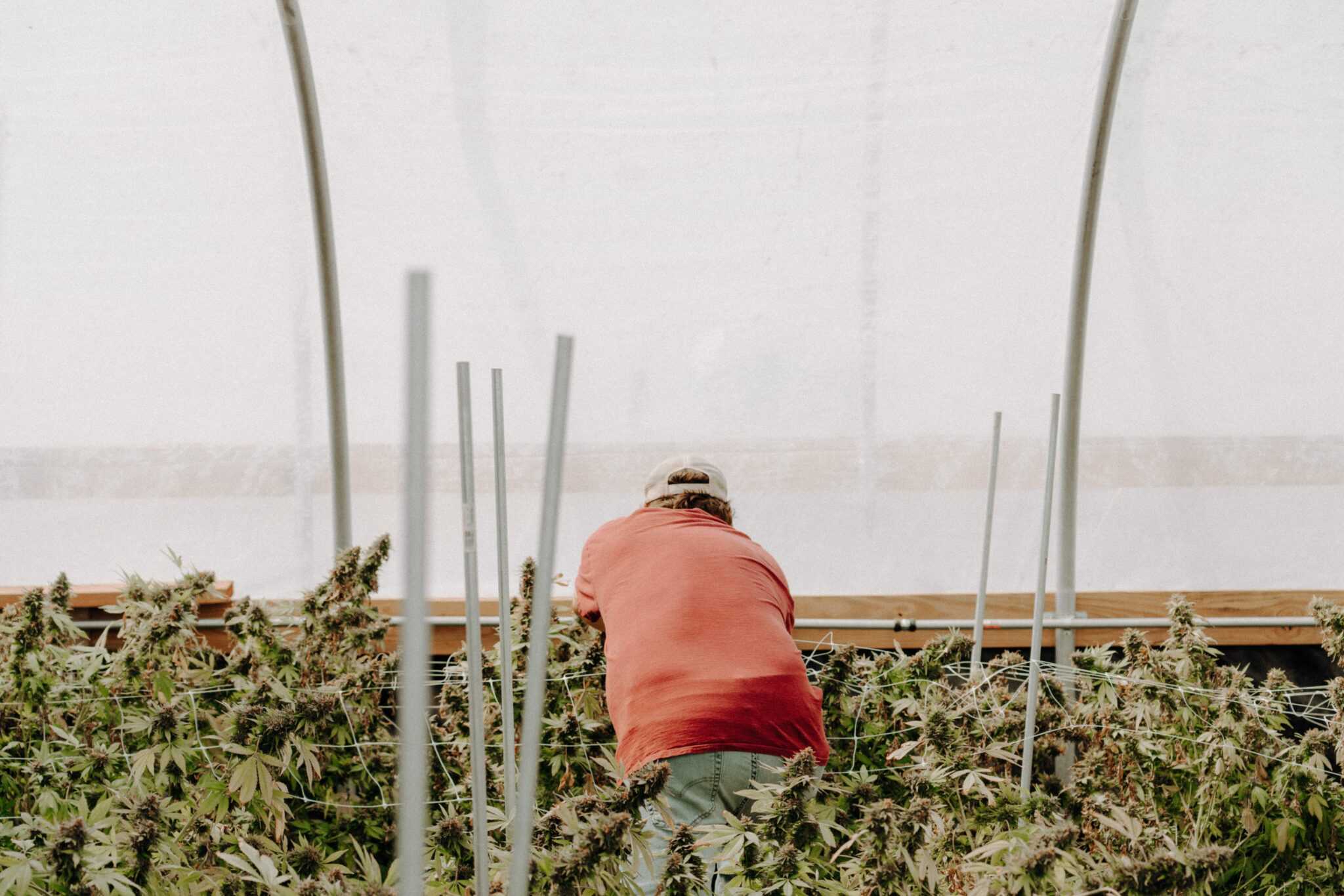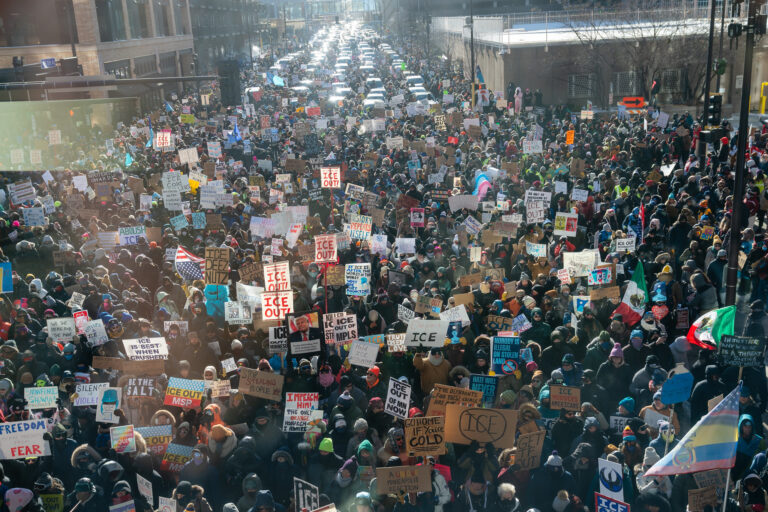Eric Jang is a student at Harvard Law School and a member of the Labor and Employment Lab.
The legal cannabis industry is currently one of the fastest-growing employers in the U.S. Since 2017, the number of Americans working with cannabis has grown each year by at least 27%. In just the last year alone, the industry grew by 33% and now employs up to 428,000 American workers. Part of the reason for this explosive growth is that many of those who left their jobs in retail and restaurants during the “Great Resignation” are flocking to dispensaries for better benefits and opportunities. Unfortunately, the improved working conditions within the cannabis industry are disproportionately unavailable to Black and brown communities. But state legislators are crafting inventive ways to address this racial inequity.
Thanks to a burgeoning labor movement, those who work with cannabis enjoy better wages and a stronger protection of labor rights than those who work in similar industries. For example in Minnesota, New Jersey, New York, and Pennsylvania, cannabis industry unions have established wage floors for trimmers and cultivators ranging from $15 to $21 an hour. Conversely, the median hourly wage for similar workers (farmworkers and laborers in nurseries and greenhouses) in the same states range between $13 to $16 an hour. Wage comparisons show that the cannabis industry’s minimum is the median for other agricultural workers — meaning that the lowest-paid cannabis trimmers and cultivators are still better paid than at least half of the workers doing similar jobs with different plants. Cannabis unions have also secured strong benefits for its members. Union contracts formed by the United Food and Commercial Workers (UFCW) in California; Washington, D.C.; Minnesota; New Jersey; New York; Pennsylvania; and Washington all include provisions to give employees access to paid sick days and time off, as well as health insurance and retirement benefits. The victories won by labor unions in the cannabis industry present a stark contrast to other farm workers who have faced significant obstacles in their struggle for better labor conditions.
Some of the cannabis industry’s achievements in labor rights can be attributed to protections embedded within the states’ legalization statutes; California, Illinois, Pennsylvania, New York, New Jersey, and Virginia either require or recommend labor peace agreements (LPA) between the employer and a labor union which might represent the employees. After the LPA requirement went into effect in New York in March of 2021, for example, PharmaCann employees with Local 338 RWDSU and UFCW ratified a new union contract for better wages, benefits and paid time off.
Other states’ legal cannabis industries have also achieved meaningful victories in the absence of an embedded LPA requirement. Cannabis workers in Minnesota, Washington, Colorado, Nevada, and Oregon have all successfully unionized with the UFCW without needing the protection of the LPA. While the necessity of the LPA still remains uncertain, one thing is clear: more and more cannabis workers are unionizing and thereby improving working conditions within the whole industry. According to a report produced by the Economics Policy Institute, cannabis workers could earn as much as an additional $8,690 per year after forming a union.
These gains, however, are not as accessible to minorities, who face barriers to entering the cannabis market. In many states, the legal cannabis industry is disproportionately white. For example in Denver, 68% of employees are white, while Black and Hispanic employees only make up 18% of the total workforce. This statistic is telling of a racial hiring bias when compared to census data that shows 55% of Denver residents are white, while 40% are Black or Hispanic. At management levels, the cannabis industry’s racial hiring bias is even more exacerbated: 90% of top executives in the largest public cannabis companies are white. If minority entrepreneurs were more successful in launching their cannabis businesses, it could also improve diversity among employees as they bring back jobs to their own communities. However as of 2021, Black Americans accounted for less than 2% of all cannabis business owners.
Black and Hispanic communities have been disproportionately targeted and ravaged by the criminalization of cannabis. For example, despite the fact that black and white people use cannabis at similar rates, Black users are 3.64 times more likely to be arrested for possession. Even in states that have decriminalized cannabis, racial disparities in arrests have persisted. As a consequence, roughly 40% of those incarcerated in state or federal prisons for drug offenses are Black. It is thus a particular injustice that these communities are not realizing the benefits of the industry after legalization.
Individual states have embraced different approaches to bring diversity and inclusion into its legal cannabis companies. One approach is to allow formerly incarcerated people to participate in the industry. In most legalized states, simply being an employee in the industry requires some form of license. These licenses are often unavailable to people with prior felonies or misdemeanors. For example in states like Alaska; Massachusetts; Nevada; Washington, D.C.; and Illinois, having a prior drug conviction (marijuana included) would mean you cannot find work in the industry. By contrast, states like California and Washington have chosen to place no restrictions on employees of cannabis companies. Meanwhile, New York and New Jersey have expunged criminal records for cannabis possession, which would effectively have the same result.
Another approach is to provide minorities with preferential treatment in licensing. Under the Massachusetts’ social equity program, cannabis business license applicants who have been disproportionately impacted by criminalization would be able to receive free training and expedite their license application process. Even if you were not personally impacted by criminalization, your Massachusetts cannabis business license application can be expedited if you show that at least 51% of your workforce are from areas of disproportionate impact, among other factors. Similarly, Illinois has set aside a number of marijuana business licenses each year for Black- and brown-owned businesses, and New York will provide the first retail cannabis licenses to those with previous cannabis convictions.
It remains to be seen whether these measures will actually accomplish fair minority representation within the industry. Critics are concerned that the current regulatory regime surrounding cannabis in many states are prohibitively expensive and complex, often requiring costly legal assistance to navigate. Given the limited number of social equity licenses available, it could result in merely pitting different members of marginalized communities against one another over very few opportunities, while rewarding those with greater political and economic resources. For example in California, only 203 social equity program applicants have been granted licenses, while 2,355 non-equity applications have been processed by 2020. To alleviate the financial constraints faced by social equity applicants, states could provide greater access to much needed capital, like New York’s $200 million fund to promote social equity for cannabis licensing. Or conversely, states could lower the cost of entry for marginalized entrepreneurs like Michigan’s social equity program, which offers significant fee reductions for those who have been disproportionately impacted by the criminalization of cannabis.
Creating a more inclusive and racially equitable cannabis industry will not be easy. But through continuous experimentation with new solutions, state legislators can eventually lower the barrier to entry for Black and brown people in the cannabis industry, and its benefits could be enjoyed by everyone.









Daily News & Commentary
Start your day with our roundup of the latest labor developments. See all
March 3
In today’s news and commentary, Texas dismantles their contracting program for minorities, NextEra settles an ERISA lawsuit, and Chipotle beats an age discrimination suit. Texas Acting Comptroller Kelly Hancock is being sued in state court for allegedly unlawfully dismantling the Historically Underutilized Business (HUB) program, a 1990s initiative signed by former Governor George W. Bush […]
March 2
Block lays off over 4,000 workers; H-1B fee data is revealed.
March 1
The NLRB officially rescinds the Biden-era standard for determining joint-employer status; the DOL proposes a rule that would rescind the Biden-era standard for determining independent contractor status; and Walmart pays $100 million for deceiving delivery drivers regarding wages and tips.
February 27
The Ninth Circuit allows Trump to dismantle certain government unions based on national security concerns; and the DOL set to focus enforcement on firms with “outsized market power.”
February 26
Workplace AI regulations proposed in Michigan; en banc D.C. Circuit hears oral argument in CFPB case; white police officers sue Philadelphia over DEI policy.
February 25
OSHA workplace inspections significantly drop in 2025; the Court denies a petition for certiorari to review a Minnesota law banning mandatory anti-union meetings at work; and the Court declines two petitions to determine whether Air Force service members should receive backpay as a result of religious challenges to the now-revoked COVID-19 vaccine mandate.